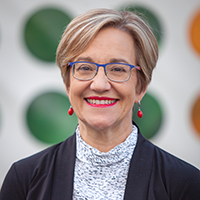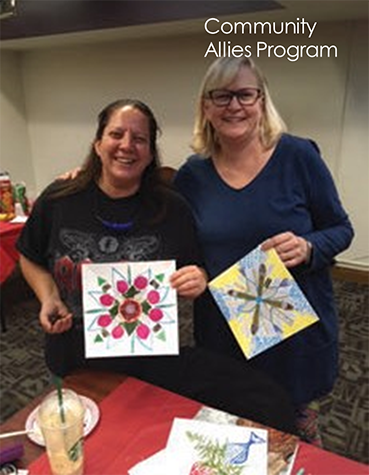If the COVID-19 pandemic has taught us anything, it is that home equals safety. We are told to stay home to stay safe. Many of us have turned our dining room tables into offices, some have converted closets into creative school spaces for their kids. We’ve all learned to Zoom!
Most of us have been able to stay safe. But what about those without homes, living in shelters or on the streets, those who can’t stay safe at home? Unlike Dorothy, in the Wizard of Oz, they can’t just click their heels three times and say “there’s no place like home,” and suddenly be safe in a place of their own.
It takes a lot more than three clicks of our heels to help people find a home, something we know well at Union Station Homeless Services. Our staff work tirelessly and constantly to meet people where they are – whether they’re living under an underpass or in their car, and help them find a place that they can call their own.
But finding affordable rental apartments in Los Angeles County is easier said then done. Los Angeles has one of the highest cost housing markets in the country. Add to that the “not in my backyard” NIMBY mentality of many residents who don’t want “those (homeless) people in their communities” means that finding housing for people requires determination, ingenuity and a “never give up” attitude.
Fortunately, these are all things my staff have in abundance. So, how have we dealt with some of these challenges? How do we find homes for people experiencing homelessness?
LANDLORD ENGAGEMENT
We know that to find apartments, we first have to find landlords. But the question is how to convince a landlord to rent to us – at often below market rent, for an individual or a family who has been living on the street or in their car? Well, the answer was relatively simple. It is about relationships!
Our staff spends much of their time getting out to meet and to know landlords, explaining how we work and introducing them to our clients. Our staff goes beyond what they need to do. They are available 24/7 if there is a concern or a problem.
We immediately take action if someone is late on rent, or is making too much noise. We work with the client, and the landlord, to make sure the experience – and the housing – works for both parties.
As a result of these relationships, we are working with over 120 landlords – and so far only one has stepped back from renting to us (they needed to reclaim the apartment for a family member). Instead, our landlords tell others about how great it is to work with us and what a difference it makes to them.
Next is dealing with those who object to housing people in their neighborhoods? We discovered that connecting people within the neighborhood truly makes a difference.
To do this we launched our award-winning Community Allies program, a program that brings together community volunteers with individuals or families who have been recently housed.
When people get to know people, see each other as fellow human beings with the same needs, hopes and dreams, it changes both hearts and minds. Now, instead of saying “not in my neighborhood” people say, “welcome neighbor.”
“Here was something I could actually do, something where I could really make a difference,” said Dr. Monique Margetis about the Community Allies Program
At the end of the day, finding housing for people requires determination, ingenuity and fostering relationships by connecting to humans in new, creative and authentic ways. Won’t you be part of the solution to ending homelessness by welcoming new neighbors into your committee?

Anne Miskey is CEO of Union Station Homeless Services. Learn more at unionstationhs.org.

